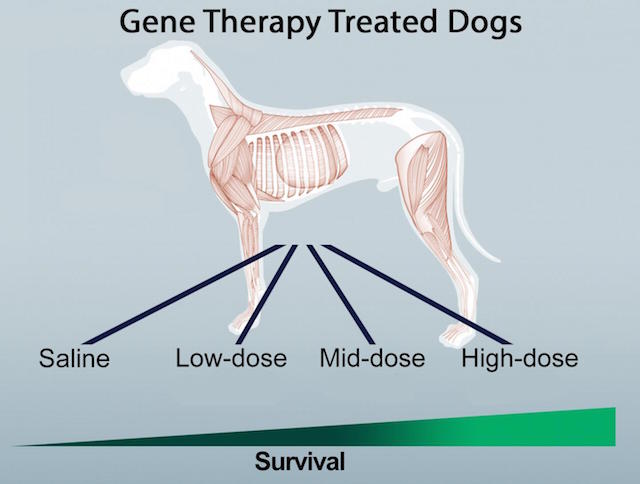Work on gene therapy is showing significant progress for restoring muscle strength and prolonging lives in dogs with a previously incurable, inherited neuromuscular disease.
The disease arises from a mutation in genes that normally make a protein, called myotubularin, essential for proper muscle function. Puppies with this naturally occurring mutation exhibit several features of babies with the same defective gene. The rare disorder, called myotubular myopathy, or MTM, affects only males. It causes fatal muscle wasting. Both dogs and boys with the disease typically succumb in early life due to breathing difficulties.
RELATED: Dogs Dream About How Much They Love Their Humans, Says Harvard Psychologist
Their paper reports that diseased dogs treated with a single infusion of the corrective therapy were indistinguishable from normal animals one year later.
“This regenerative technology allowed dogs that otherwise would have perished to complete restoration of normal health,” said Dr. Martin K. “Casey” Childers, UW Medicine researcher and physician.
Gene therapy holds the promise to treat many inherited diseases. To date, this approach has not been widely translated into treatment of skeletal muscle disorders.
MORE: Dogs Can Actually Understand What Humans Are Saying, Study Says
“We report here a gene therapy dose-finding study in a large animal model of a severe muscle disease where a single treatment resulted in dramatic rescue,” said Childers. The findings demonstrate potential application across a wide range of diseases and broadly translate to human studies. The data supports the development of gene therapy clinical trials for myotubular myopathy, the researchers concluded.
(Source: University of Washington Health Sciences)
Click To Share The Pawesome News With Your Friends




















